分科会概要
Overview of Working Group
分科会4
完全資源・物質循環による地球環境再生計画
温室効果ガスの削減や地球環境の清浄化に向けて、資源・物質循環の構築が不可欠である。
本分科会では、資源・物質循環構築を実現するため、カーボンリサイクル等の資源・物質循環による温室効果ガス削減技術、省資源化技術、環境浄化技術、循環プロセス実現のための省・創エネ技術の革新的な研究開発とMS目標を検討する。
- 主 査:
- 山地 憲治
地球環境産業技術研究機構 副理事長・研究所長
- 副主査:
- 稲葉 敦
工学院大学 先進工学部 教授
【関連する目標例】
- ・「2050 年までに完全資源・物質循環の達成」を中心に、
- ・「2050 年までに、現在の 1/100 の資源ロスで現在の生活水準が維持可能な工業生産・利用の実現」
- ・「2040 年までに、単位計算量当たりエネルギー消費を 1/1000 に」
- ・「2060 年までに持続可能なエネルギー独立の達成」
- ・「2050 年までに地球上からの「ゴミ」の廃絶」
【登壇者一覧】
講演資料の無断転載・複製を禁じます
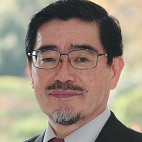
PROFILE
Dr. Kenji Yamaji, Emeritus Professor of the University of Tokyo, is Senior Vice President / Director-General of the Research Institute of Innovative Technology for the Earth (RITE) since April 1, 2010. He served as President of the Japan Institute of Energy and as President of the Japan Society of Energy and Resources. Dr. Yamaji’s immediate past position was a Professor of Electrical Engineering and Information Systems at the University of Tokyo. He obtained B.S., M.S., and Dr. of Engineering degrees in nuclear engineering from the University of Tokyo in 1972, 1974, 1977 respectively. During the earlier part of his career, Dr. Yamaji had been extensively involved in the analysis of energy technology assessment, mainly at the Central Research Institute of Electric Power Industry (CRIEPI) in Japan. He has published more than 80 books as well as many research papers on energy systems, and he is also serving in many advisory bodies on energy and environmental policy for the Japanese government. Dr. Yamaji contributed to Intergovernmental Panel on Climate Change (IPCC) as a lead author for the 3rd and 4th Assessment Reports of WG3.
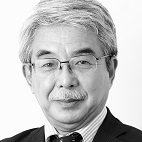
PROFILE
Atsushi Inaba graduated and got a doctor’s degree in Chemical Engineering at the University of Tokyo, and then joined AIST in 1981 for the study of the development of coal liquefaction technology. He has been in charge of the evaluation study of CO2 mitigation technologies since 1986 and Life Cycle Assessment since 1993. He has research experience at National Bureau of Standards, MD. USA (1984-1986) and at International Institute for Applied Systems Analysis, Vienna, Austria.(1990-1992).
He had led the activities related to LCA in Japan as the director of Research Center of LCA, AIST since 2001 to the end of March 2008, which is followed in the Research Institute of Science for Safety and Sustainability, AIST. He initiated to develop Japanese LCI database and Impact Assessment method, LIME with his AIST colleagues. He was Professor of the University of Tokyo since 2005 to 2009. He moved to Kogakuin University on April 2009.
He was one of co-chairs of ISO/TC207/SC5-WG6 (Re-edition of ISO-14040 series) in 2005-2007, and was a vice director in the first phase of the International Life Cycle Panel of UNEP/SETAC Life Cycle Initiative since 2002 to 2006.
He was a chairperson of the project of Carbon Footprint of Products in Japan. He was a lead author of WGIII, Chapter 12 (Human Settlement) of IPCC AR5. He is the chairman of the Japanese National Committee of ISO/TC207/SC5(LCA), and the expert of ISO-14008, ISO-14026 etc.
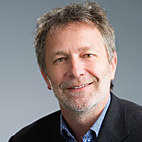
PROFILE
Martin Keller has served as Director of the National Renewable Energy Laboratory (NREL) and President of the Alliance for Sustainable Energy—the company that operates NREL for the U.S. Department of Energy—since 2015. Under his leadership, the number of full-time employees at NREL has increased by more than 32%. Martin is a visionary leader who is committed to people, teams and partnerships. He innovatively and pragmatically applies private sector best practices at NREL to achieve game-changing scientific outcomes.
Working collaboratively with his leadership team, Martin developed a strategy for NREL focused on three key initiatives: integrated energy pathways, circular economy, and electrons to molecules. This strategy drives advanced scientific research, programs, projects, and partnerships at NREL. For example, NREL recently signed a ten-year, $100 million agreement with ExxonMobil to research and develop lower emission energy technologies and accelerate new ideas about energy.
Currently, Martin is a Fellow of the American Association for the Advancement Science (AAAS) and the Chair-Elect of the AAAS Industrial Science and Technology Section. In addition, he is a member of the Scientific Advisory Council for Julich Forschungszentrum and serves on numerous other scientific advisory boards.
Martin received his Ph.D. in Microbiology from the University of Regensburg, Germany.
Christian Thiel / Head of Energy Efficiency and Renewables Unit, Joint Research Centre – European Commission
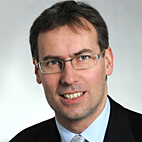
PROFILE
Christian Thiel works in the European Commission's Joint Research Centre (JRC) since 2009, amongst others in the Energy Systems Evaluation Unit and Sustainable Transport Unit. Since February 2018 he is Head of the Energy Efficiency and Renewables Unit in the Directorate for Energy, Transport and Climate. The unit's mission is to support the deployment of energy efficiency and renewable energy technologies, measures and policies. It provides support in the implementation of key EU Directives such as the Renewable Energy and Energy Efficiency Directives. These activities are conducted in collaboration with relevant Commission Services, national and International organisations and stakeholders. In addition, the Unit provides reference measurements and test methods for photovoltaic technologies. Previously, Christian was leader of the electro-mobility modelling and energy system modelling projects within the JRC.
Before joining the European Commission, Christian Thiel worked for more than 12 years in the automotive industry, in the Engineering Centre of Adam Opel AG/ General Motors Europe. During his tenure at Opel/ General Motors, Christian had various assignments with increasing responsibility, ranging from Technical Staff for Waste Management Systems, Project Engineer Life Cycle Assessment (LCA), Assistant General Secretary European Council for Automotive R&D (EUCAR) in Brussels to Manager Portfolio Engineering and CO2 Strategy, and European Program Engineering Manager Chevrolet Volt/ Opel Ampera.
He holds a Doctoral degree (Dr.nat.techn.) from the University of Natural Resources and Life Sciences Vienna, a Master's degree in Environmental Science (Geooekologie) from the Technical University Braunschweig, a bachelor's degree in Biology from Université Paris VI and an undergraduate degree in Economics from the Goethe University Frankfurt am Main. Christian has published 40 papers in peer-reviewed journals (with an h-factor of 18 according to Scopus).
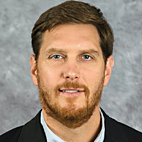
PROFILE
Gregory Nemet is a Professor at the University of Wisconsin–Madison in the La Follette School of Public Affairs. He teaches courses in policy analysis, energy systems, and international environmental policy. Nemet's research focuses on understanding the process of technological change and the ways in which public policy can affect it. He received his doctorate in energy and resources from the University of California, Berkeley. His A.B. is in geography and economics from Dartmouth College. He received an Andrew Carnegie Fellowship in 2017 and used it to write a book on how solar PV provides a model for low carbon innovation: (Routledge 2019). He was awarded the inaugural World Citizen Prize in Environmental Performance by APPAM in 2019. He is currently a Lead Author for the Intergovernmental Panel on Climate Change, 6th Assessment Report.
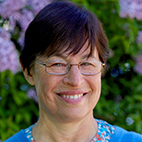
PROFILE
Rothschild has long been passionate about evolution and microbes, on planet Earth and potentially beyond. In particular, her work has focused on the evolution of carbon fixation and life in extreme environments. In 2008 Rothschild established a program in synthetic biology for NASA, making the case that biology will be the enabling technology for human exploration. She has represented NASA on two OSTP synthetic biology working groups. Flight experience includes serving as the PI on the PowerCell payload on DLR’s Eu:CROPIS satellite. Extensive outreach including lectures worldwide, documentaries and two TED talks. Teaching includes “Astrobiology and Space Exploration”, Stanford, 2004-13, directing undergraduate and Ph.D. theses, and serving as the faculty advisor of the award-winning Stanford-Brown iGEM team. Projects included synthetic biology for Mars Exploration (2011), Synthetic biology for astrobiology, including BioMining (2012), Synthetic Biocommunication (2013), Towards a Biodegradable UAS (2014), BiOrigami (2015) and BioBalloon (2016), Myco for Mars (2018) and Towards an Astropharmacy (2019). She has received multiple awards including NASA awards, the Isaac Asimov award from the Humanists Society and the Horace Mann Award from Brown University. She is a fellow of the Linnean Society of London, the California Academy of Sciences and the Explorers Club.
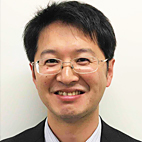
PROFILE
2002 B.S., Kanazawa University, Faculty of Pharmaceutical Sciences
2004 M.S., Kanazawa University, Natural Science and Technology
2007 Ph.D., Kanazawa University, Graduate School of Natural Science and Technology
2007 Laboratory Member, Takeda Pharmaceutical Company Limited
2008 Assistant Professor, Kanazawa University, Graduate School of Natural Science and Technology
2011 Visiting Scholar, Stanford University, Department of Chemistry
2012 Associate Professor, Kanazawa University, Graduate School of Natural Science and Technology
2019 Professor, Kobe Gakuin University, The Faculty of Pharmaceutical Sciences
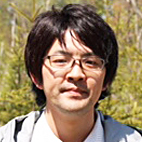
PROFILE
Dr. Souichiro Kato received B.S. and M.S. degrees and a Ph. D. in Agriculture from University of Tokyo, Japan, in 2001, 2003, and 2006, respectively. He worked as a postdoctoral fellow at Marine Biotechnology Institute, Japan (2006~2008) and JST ERATO Hashimoto Light Energy Conversion System Project (2008~2011). He is a senior researcher in National Institute of Advanced Science and Technology (2011~) and also has/had a position of specially appointed assistant professor in University of Tokyo (2012~2016), Hokkaido University (2012~) and Osaka University (2016~). The fields of his expertise are environmental microbiology and applied microbiology. His research interests include microbial energy metabolisms (electro-microbiology, microbial methane production/degradation, etc.), discovery of novel microorganisms, and application of microbial activities to environmental purification.
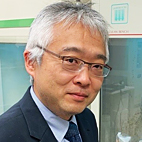
PROFILE
K.K. earned a PhD in engineering from Tokyo Tech in 1997. After studying biodegradation mechanism of biodegradable plastics as a postdoctoral fellow at RIKEN, he moved to Gunma University as an assistant professor in 1999. He was promoted to a professor in 2010, and also has been appointed a special assistant of the president at Gunma University since 2017. His speciality is biodegradation mechanism of biodegradable plastics, which consists of polymer science, enzymology, microbiology, and other related areas. Currently he is fascinated by the development of biodegradable plastics in marine environments.





